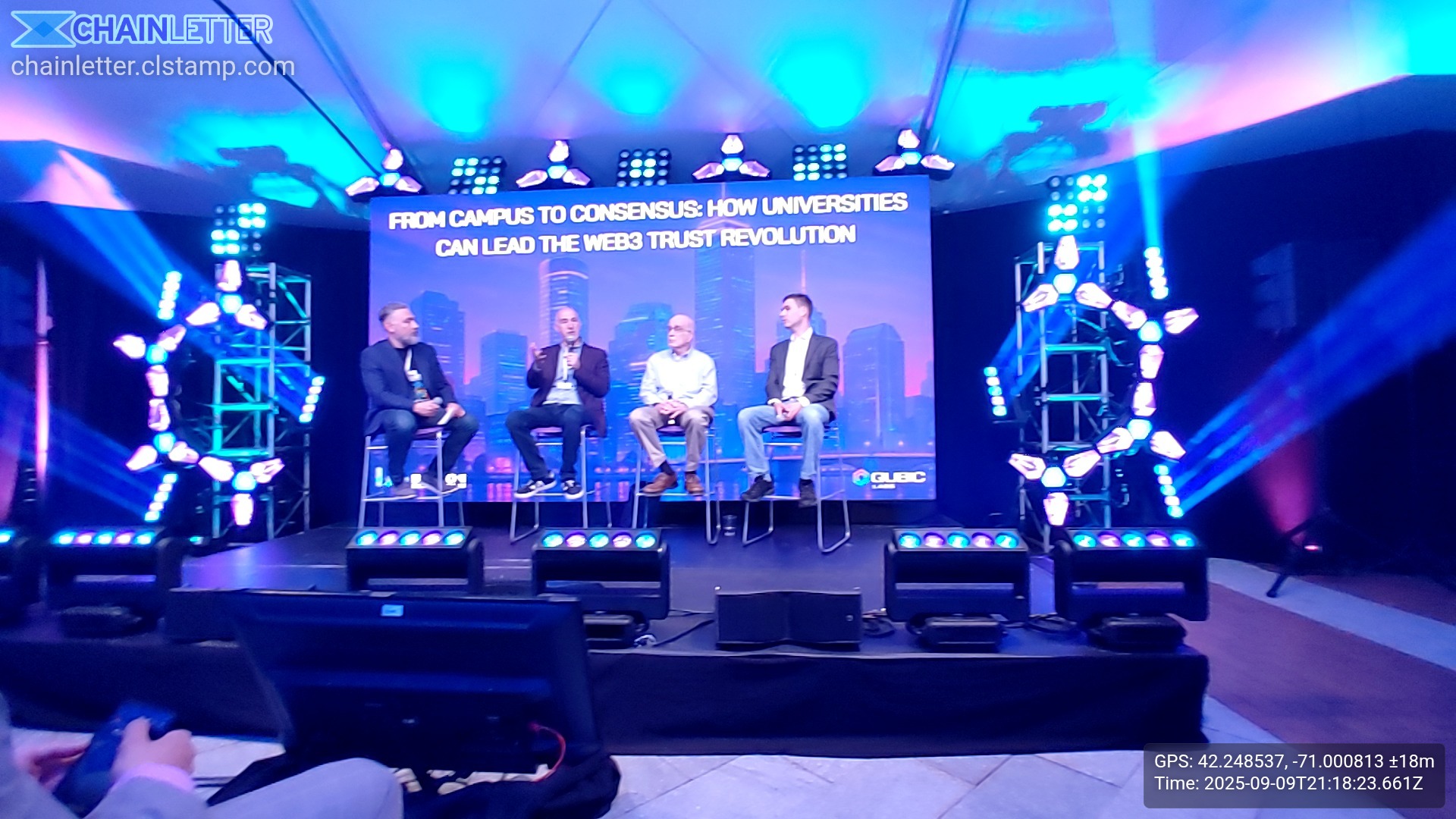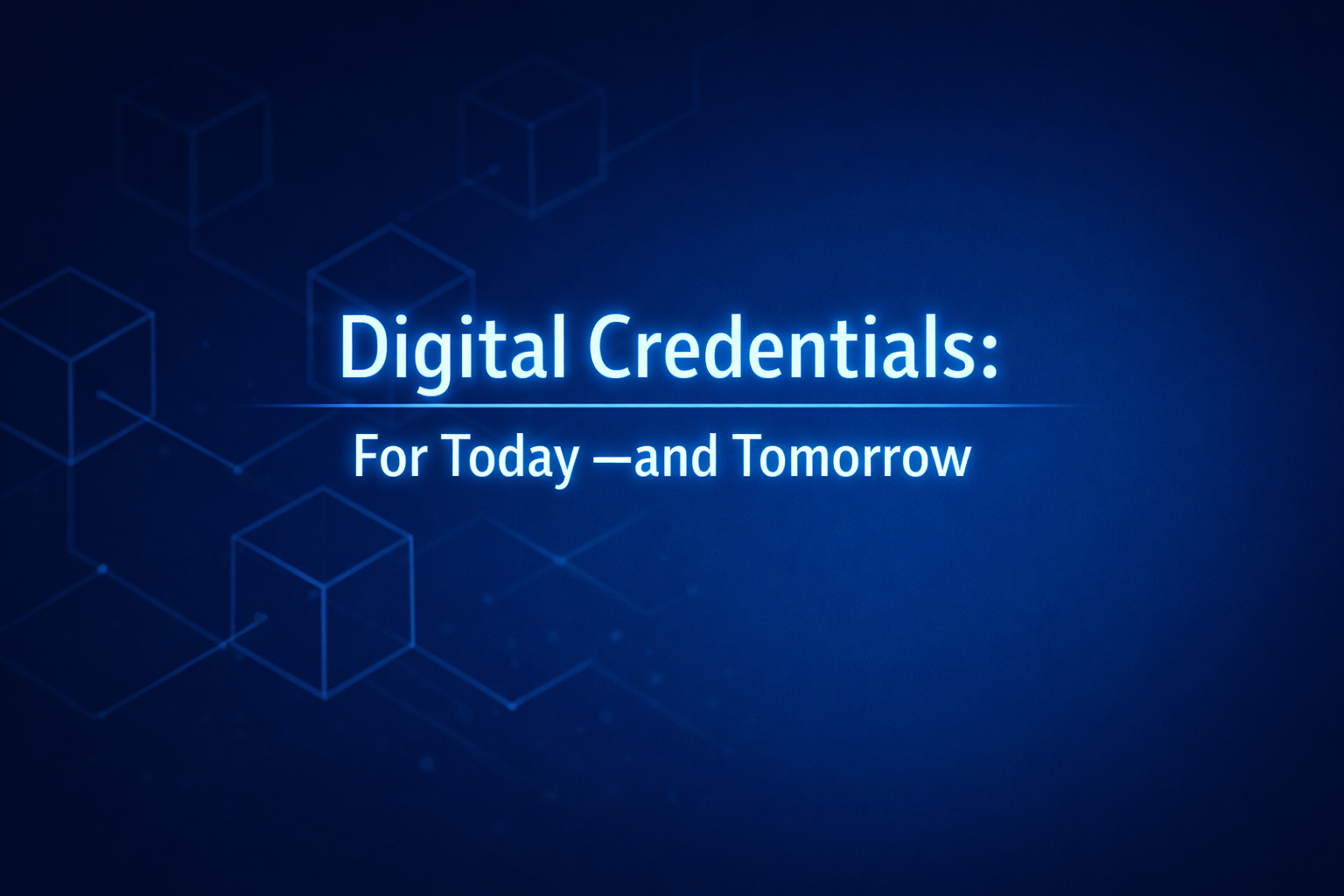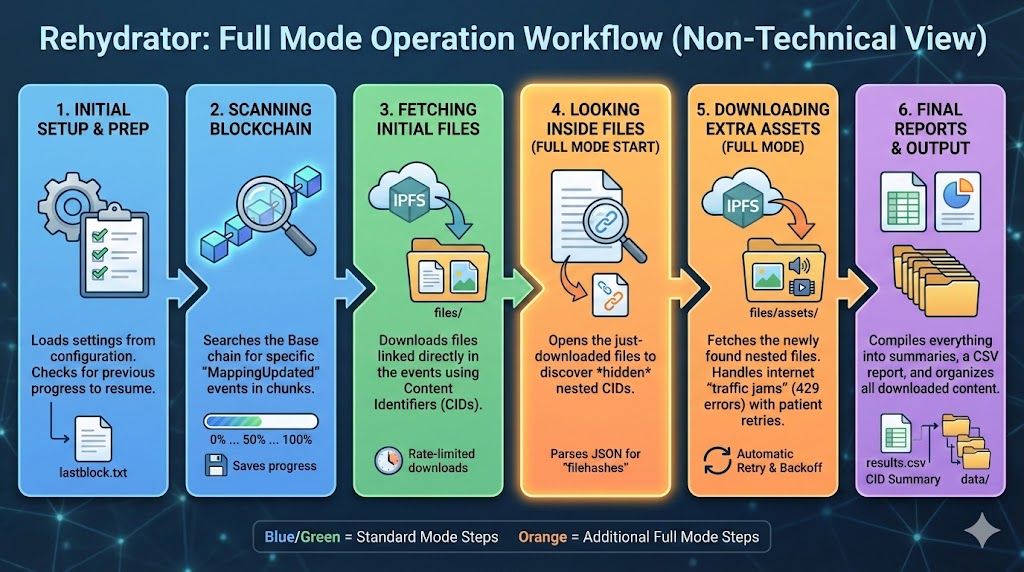by Sol Nasisi
Share
by Sol Nasisi

On September 9, Chainletter Co-founder Sol Nasisi participated in a panel as part of Boston Blockchain Week. The panel, entitled From Campus to Consensus: How Universities Can Lead the Web3 Trust Revolution, featured a lively discussion on higher education’s potential to educate students on blockchain, the opportunity for universities to become sources of trust and truth through digital credentials, and ways that blockchain can change how universities function.
Other members of the panel included Jahon Jamali, Founder and CEO of the American Crypto Academy; Len Evenchik, Professor of IT at Boston College; and Matthew McCormick, Engagement Manager at Grant Thornton.
University Education
The discussion began by exploring how colleges and universities are educating students on blockchain. Sol Nasisi noted that many universities are only now developing the faculty expertise and knowledge to teach blockchain effectively—and that student interest tends to wax and wane with crypto prices. “We’re at a high point right now,” he observed.
Professor Len Evenchik explained that blockchain is inherently cross-disciplinary and requires coordination across IT, Business, Economics, and other areas. Matt McCormick added that universities need to look across all layers of their operations—faculty, staff, and governance—to truly support blockchain education, a challenge for many institutions.
Digital Credentials
Sol highlighted that universities are already migrating toward digital credentials and that blockchain-based credentials provide a faster, cheaper, and more immutable option. “What happens if a traditional credential vendor goes out of business? Students could lose all of their digital credentials. That doesn’t happen with the blockchain.”
Matt added that if a school itself closes, then all the credentials it issued could be at risk. Blockchain-based credentials address that problem by ensuring permanence and accessibility.
New Business Models
When discussing new business models, Professor Evenchik mentioned the possibility of distributed recruitment systems that span multiple schools. Sol spoke about enabling universities to collect tuition in cryptocurrency. Matt highlighted the potential for new forms of governance built on blockchain systems.
Overall, the panel underscored important ways higher education can lead the wider adoption of blockchain, while also using blockchain to make its own operations more efficient and resilient.
Note: The image associated with this post was Stamped authentic via Chainletter’s new mobile photo app. You can view the authentication file here.




